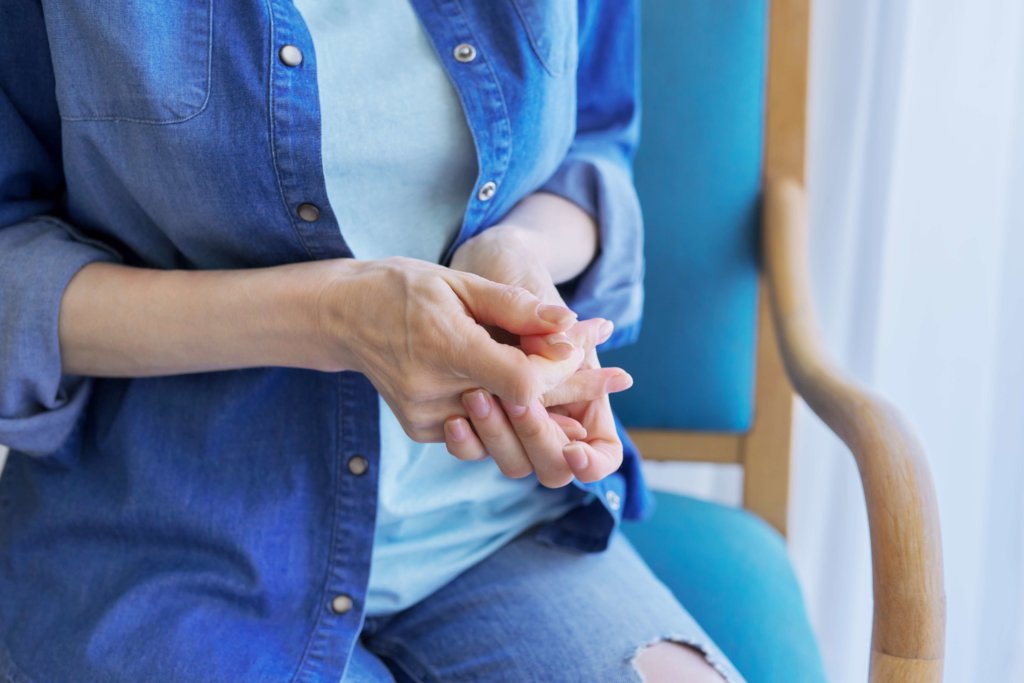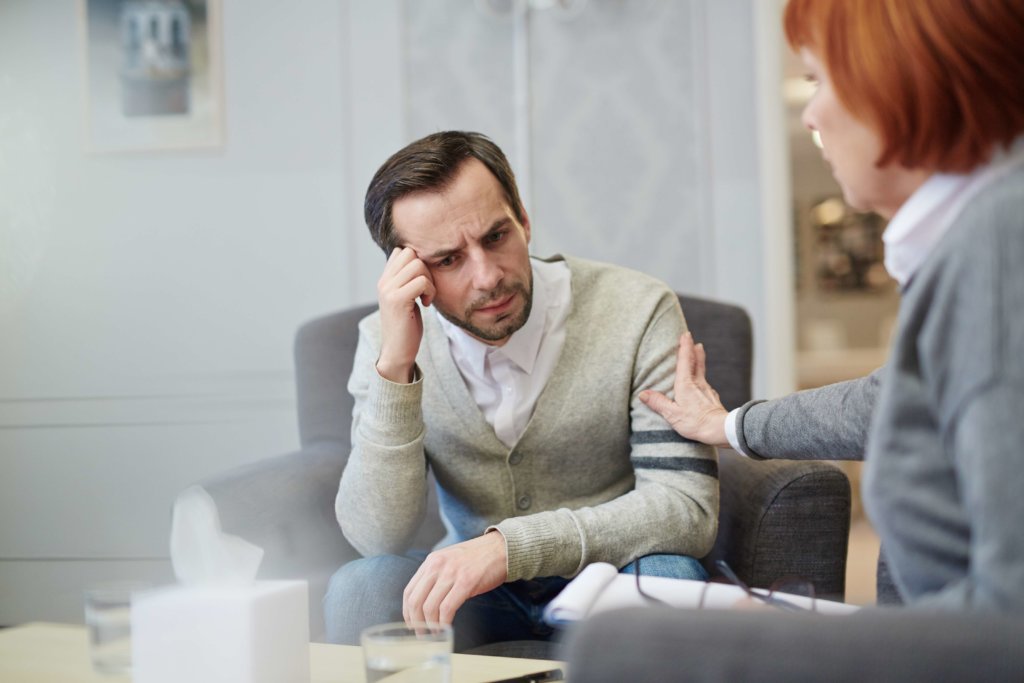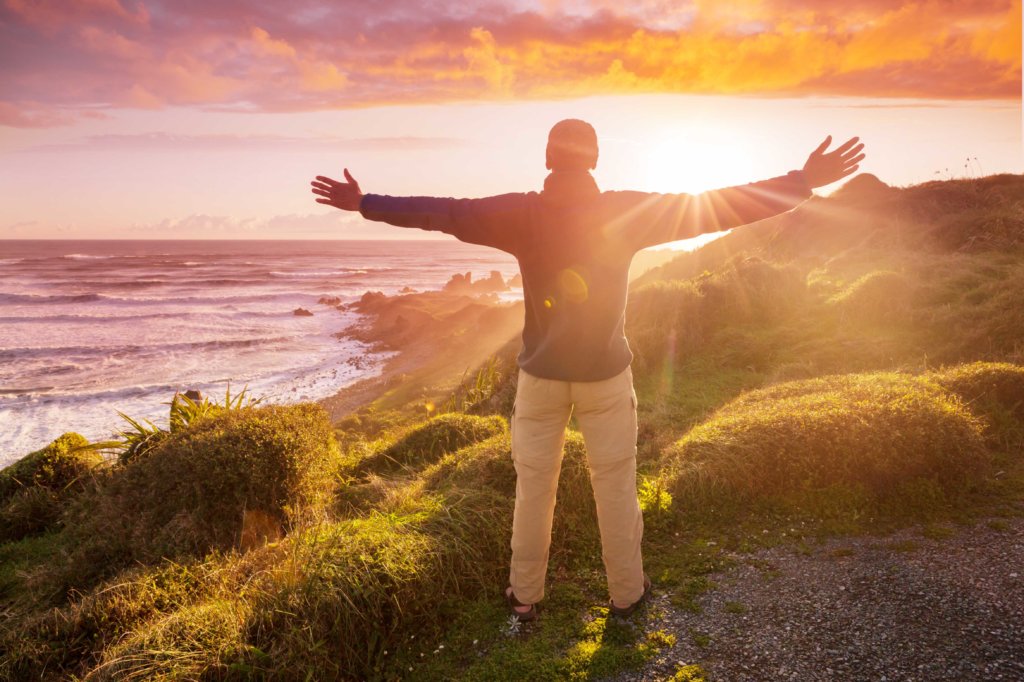Anxiety and panic attacks can be caused by alcohol consumption.

What is anxiety?
Anxiety refers to a feeling of fear or worry about what will happen.
People feel anxious from time to time. This is a normal human reaction and generally passes when the situation is over, such as around job interviews. However, if you feel that your anxiety is overwhelming or affecting your daily life, you have options.
Types of anxiety and their symptoms
If anxiety limits your ability to live fully, it can be a problem.
Doctors may use a variety of medical terms to describe anxiety. These include generalized anxiety disorder (GAD), panic attacks, social anxiety, and specific phobias.
- Generalized Anxiety Disorder
Generalized Anxiety Disorder (GAD) manifests as chronic anxiety, tension, and excessive worry, even when there’s little to no reason for it.
- Obsessive-Compulsive Disorder (OCD)
It is characterised by repetitive, unwelcome thoughts (obsessions) and compulsive behaviors (compulsions). Many repetitive behaviors, such as counting, checking, and cleaning, are done to prevent obsessive thoughts or make them disappear. However, these so-called rituals provide temporary relief and can increase anxiety.
- Panic Disorder
Sudden and repeated episodes of extreme fear mark it. It can be accompanied by chest pain, heart palpitations, and shortness of breath.
- Post-Traumatic Stress Disorder (PTSD)
It can be caused by exposure to a frightening event or another ordeal where grave physical harm was or was threatened. PTSD can be triggered by trauma, such as violent personal assaults, natural disasters, accidents, and military combat.
- Social Phobia or Social Anxiety Disorder
It is an anxiety disorder that causes excessive anxiety and self-consciousness in social situations. Social Phobia can involve fear of speaking in public, eating or drinking in public, or feeling anxious in any social situation.
They all trigger your body into “fight or flight” mode. As a result, hormones are released into the bloodstream that prepares you for reacting or running away. It can lead to fatigue, difficulty concentrating, sleeping, headaches, stomach aches, and other symptoms.
Because alcohol can interfere with your fight or flight response, drinking can make it more difficult to suffer from anxiety disorders.
Anxiety and alcohol abuse
Alcohol can cause depression. Alcohol can slow down the brain’s processes and central nervous system and make you less anxious. You might feel less stressed in the short term, but this effect quickly wears off.
Drinking alcohol can make anxiety worse.
If you drink a lot of alcohol, your central nervous system becomes accustomed to the suppressing effects of alcohol. This can lead to brain damage if your alcohol levels suddenly drop.

Anxiety and alcoholism cycle
To avoid getting trapped in a vicious cycle, don’t let anxiety get the best of you by allowing alcohol to relax your nerves.
- You drink alcohol.
- Initial calm is experienced as alcohol affects the brain.
- Anxiety is a sign of alcohol withdrawal.
- To relieve anxiety, you may drink again.
The last step does not start the process from the beginning. The effects of alcohol can cause anxiety as the initial calm fades. Alcohol and anxiety attacks are common withdrawal symptoms.
To get the same sensation, you will need to drink more alcohol. You could become dependent on alcohol to calm your anxiety. This can lead to alcohol dependence.
Panic attacks and alcohol
A panic attack is sudden, bringing intense fear and anxiety. You may also feel dizzy, faint, lightheaded, or anxious.
A panic attack can last anywhere from 5 to 30 minutes. Although they can be scary, panic attacks are not dangerous and should not be considered a threat.
Reduce your alcohol intake if you have alcohol-induced panic attacks.
The brain chemistry of alcohol can be affected. It can cause panic by increasing GABA levels, which is a chemical that has a relaxing effect. Although small amounts of alcohol can increase GABA levels and induce relaxation, heavy drinking can cause panic attacks and tension. Alcohol withdrawal can lead to panic attacks.
How to avoid alcohol from causing anxiety or worsening it
Reduce alcohol intake if you have anxiety symptoms. This guide will help you get started.
Track
To spot trends and avoid triggers, track how much you drink and your drinking habits.
Reduce
Reduce your drinking. It is safer to reduce slowly and not make drastic changes.
We offer advice on how to stop drinking. However, if you are concerned that you may be dependent on alcohol, talk to your doctor or contact Hathaway Recovery.
Keep it up
After you have stopped drinking, you can continue this routine for several weeks. As the brain’s chemical and biological processes begin to return to normal, most people will notice an improvement in anxiety symptoms. You also experience better sleep quality.
Review
Contact a specialist if you feel anxious even after several weeks. CBT (cognitive behavioral therapy) can help you recognize unhelpful behavior patterns and help you develop coping strategies. For more information or assistance, please get in touch with us.

It is possible to live a happy life without drugs and alcohol. We are here to help you every step of the way. Hathaway Recovery’s mission encourages individuals to be their best, happiest selves. Our sincere hopes, healing, and positive ideas transform lives.






